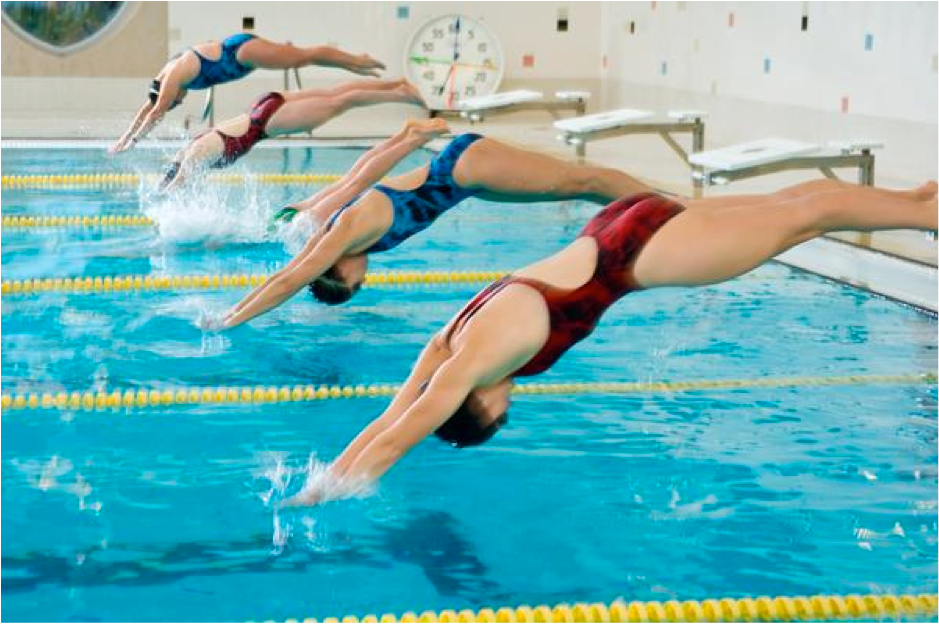
Are you a newbie swimmer? Well swimming is both a physically and mentally demanding sport and your diet is a vital factor to consider in order to improve your performance. Fresh swimmers often wonder what is the best diet for them? How much fat, carbohydrates and proteins they must consume to keep them fit and to perform well? However, getting it right enables you to train and compete at your best. Peep into this article and get some nutrition tips on the right foods to eat for novice swimmers.
Nutrition Tips for Fresh Swimmers
Whether you are a rookie or a competing athlete, whether swimming is your new passion or a necessity for your triathlon addiction, the right combination of foods can boost your energy levels and keep you active longer.
A high carbohydrate, low-fat diet with some protein is the best way to keep your bodies on top form. Below are some ideas to help you on your way to a better diet for swimmers that will help you with training and racing in the water. Here you go! Check out some Nutritional Needs For Aspiring Swimmers.
Eat Fruits and Vegetables
Swimming is an arduous exercise that requires muscle strength. Therefore, if you are a rookie swimmer, aim to consume at least 3-5 servings of fruits and vegetables every day. Fruits are an excellent source of fast acting energy surges, whereas fresh green and leafy vegetables are a good source of antioxidants. Make sure you get your required energy supply from succulent fruits and luscious veggies and improve your performance with a boost of energy.
- You can also munch on dried fruits such as almonds and walnuts since they are rich in ‘good cholesterol’ and vitamin E.
Balance Your Diet with Carbohydrates
Get an access to a quick carbohydrate snack as carbohydrate-rich foods are great for a quick burst of energy. The common idea is that a high intake of carbohydrates will prepare the muscle with a source of glycogen which is stored carbohydrates. This allows the swimmer to avoid early muscle fatigue, low energy and allow them to swim faster! Choose whole grains such as oats, over refined starches, it protects you against energy lags.
- Keep some savory snacks nearby too. They have high salt content which helps in the absorption of water. This will help you train for long periods of time without dehydration.
Perk Up Your Plate with Proteins
Protein is essential to repair muscles and build new tissues. If you are preparing yourself to set for swimming, incorporate protein meals into your diet. The amount of protein your body requires depends on the duration and intensity of your exercise. Do not eat too much protein. This is absolutely unnecessary because your body stores excess protein as fat. So consume protein in moderation. Eat animal protein such as eggs, meat fish and dairy and vegetable proteins including nuts and legumes.
- For female swimmers, have an adequate intake of iron rich foods such as, red meat, dried apricots, raisins and green leafy vegetables as iron deficiency diminishes cardio vascular performance in swimming.
Follow the Low Fat Rule
Do not pig out on sluggish unsaturated fats. Reduce fat intake as much as possible because only ten percent of the fat eaten goes into the muscles and the rest is stored in the fat cells thus obstructing your performance. Foods high in fat include sugary stuff or desserts such as cakes, pastry, donuts and chocolates. Keep these foods at bay and eat green vegetables, oily fish, low fat yogurt and skimmed milk.
- You can graze on healthy fats including oily fish, some nuts, avocados and olive oil. It is better to grill, boil or bake foods instead of frying.
Hydrate Well
Make sure you get plenty of hydration along with a healthy diet. Water is a crucial part of your diet as an athlete. Swimming uses up a lot of your water reserve and you need to replenish constantly. So drink lot of water before, during and after swimming without having to wait for feeling thirsty. Avoid caffeinated and soda drinks. You can also drink fresh fruit juices or sports drinks.
- While everyone should drink at least eight glasses of water every day, an athlete requires more. Dehydration can cause overheating and fatigue.
Swimming is a strenuous activity and makes huge demands on the body but ensuring your diet is the key to improve your overall performance. Although swimming is great for toning your body muscles but with good nutrition a swimmer can expect a healthy improvement in his performance. A slight alteration in your diet can make a huge difference. So are you ready to swim?
Author Bio:
Stephanie Ingram is a blogger, writer and an enthusiast to spend her efforts and time in learning, applying and writing fitness articles, health care and green living. She has been passionate about learning and sharing the ways to improve fitness and maintain optimal health in order to live an active life.

Leave a Reply